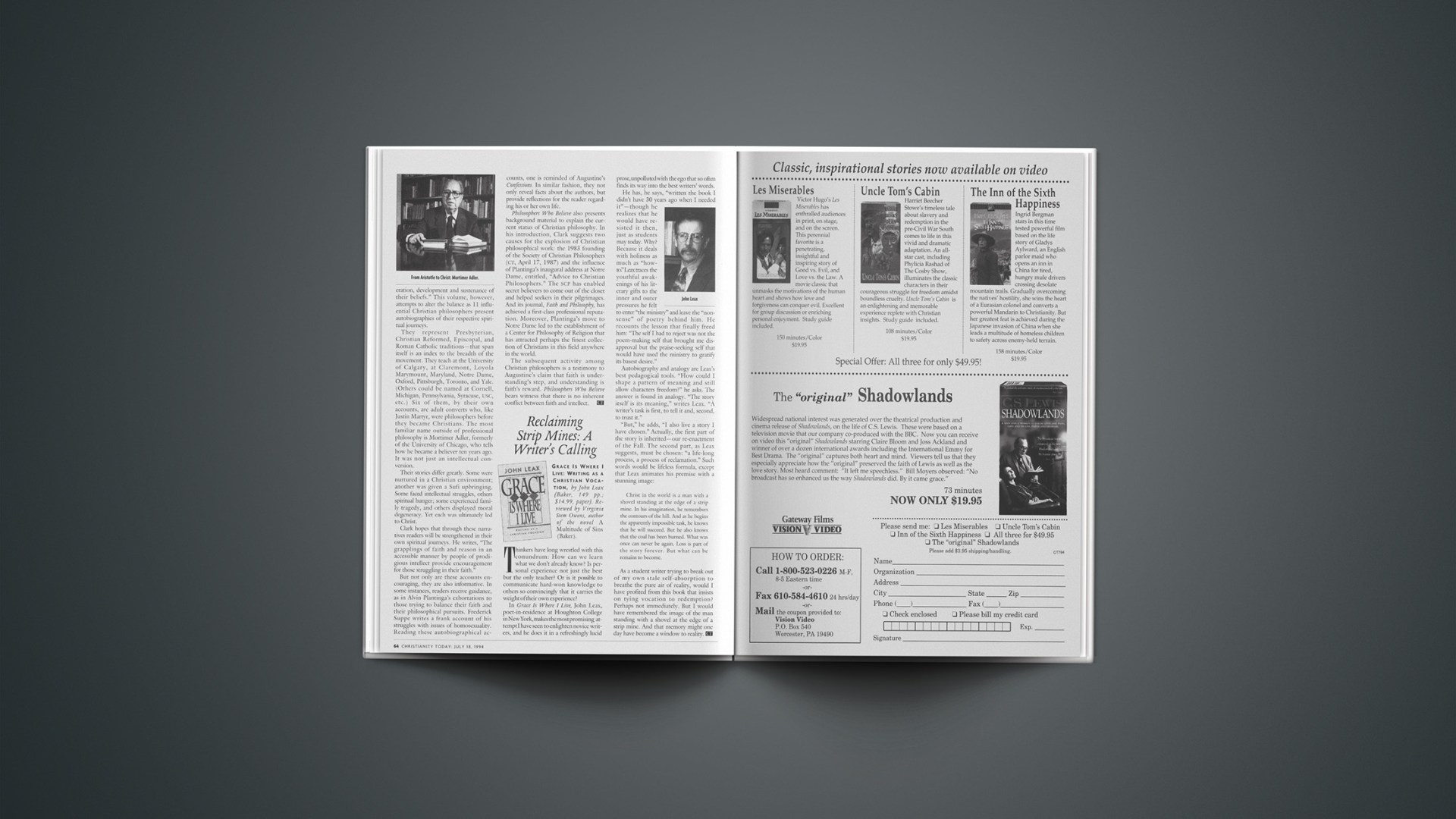Reclaiming
Grace Is Where I Live: Writing As a Christian Vocation, by John Leax (Baker, 149 p, $14 99, paper). Reviewed by Virginia Stem Owens, author of the novel “A Multitude of Sins” (Baker).
Thinkers have long wrestled with this conundrum: How can we learn what we don’t already know? Is personal experience not just the best but the only teacher? Or is it possible to communicate hard-won knowledge to others so convincingly that it carries the weight of their own experience?
In “Grace Is Where I Live,” John Leax, poet-in-residence at Houghton College in New York, makes the most promising attempt I have seen to enlighten novice writers, and he does it in a refreshingly lucid prose, unpolluted with the ego that so often finds its way into the best writers’ words.
He has, he says, “written the book I didn’t have 30 years ago when I needed it”—though he realizes that he would have resisted it then, just as students may today. Why? Because it deals with holiness as much as “how-to.” Leax traces the youthful awakenings of his literary gifts to the inner and outer pressures he felt to enter “the ministry” and leave the “nonsense” of poetry behind him. He recounts the lesson that finally freed him: “The self I had to reject was not the poem-making self that brought me disapproval but the praise-seeking self that would have used the ministry to gratify its basest desire.”
Autobiography and analogy are Leax’s best pedagogical tools. “How could I shape a pattern of meaning and still allow characters freedom?” he asks. The answer is found in analogy. “The story itself is its meaning,” writes Leax. “A writer’s task is first, to tell it and, second, to trust it.”
“But,” he adds, “I also live a story I have chosen.” Actually, the first part of the story is inherited—our re-enactment of the Fall. The second part, as Leax suggests, must be chosen: “a life-long process, a process of reclamation. “Such words would be lifeless formula, except that Leax animates his premise with a stunning image:
Christ in the world is a man with a shovel standing at the edge of a strip mine. In his imagination, he remembers the contours of the hill. And as he begins the apparently impossible task, he knows that he will succeed. But he also knows that the coal has been burned. What was once can never be again. Loss is part of the story forever. But what can be remains to become.
As a student writer trying to break out of my own stale self-absorption to breathe the pure air of reality, would I have profited from this book that insists on tying vocation to redemption? Perhaps not immediately. But I would have remembered the image of the man standing with a shovel at the edge of a strip mine. And that memory might one day have become a window to reality.
Copyright © 1994 Christianity Today. Click for reprint information.
ctjul94mrw4T80185619










